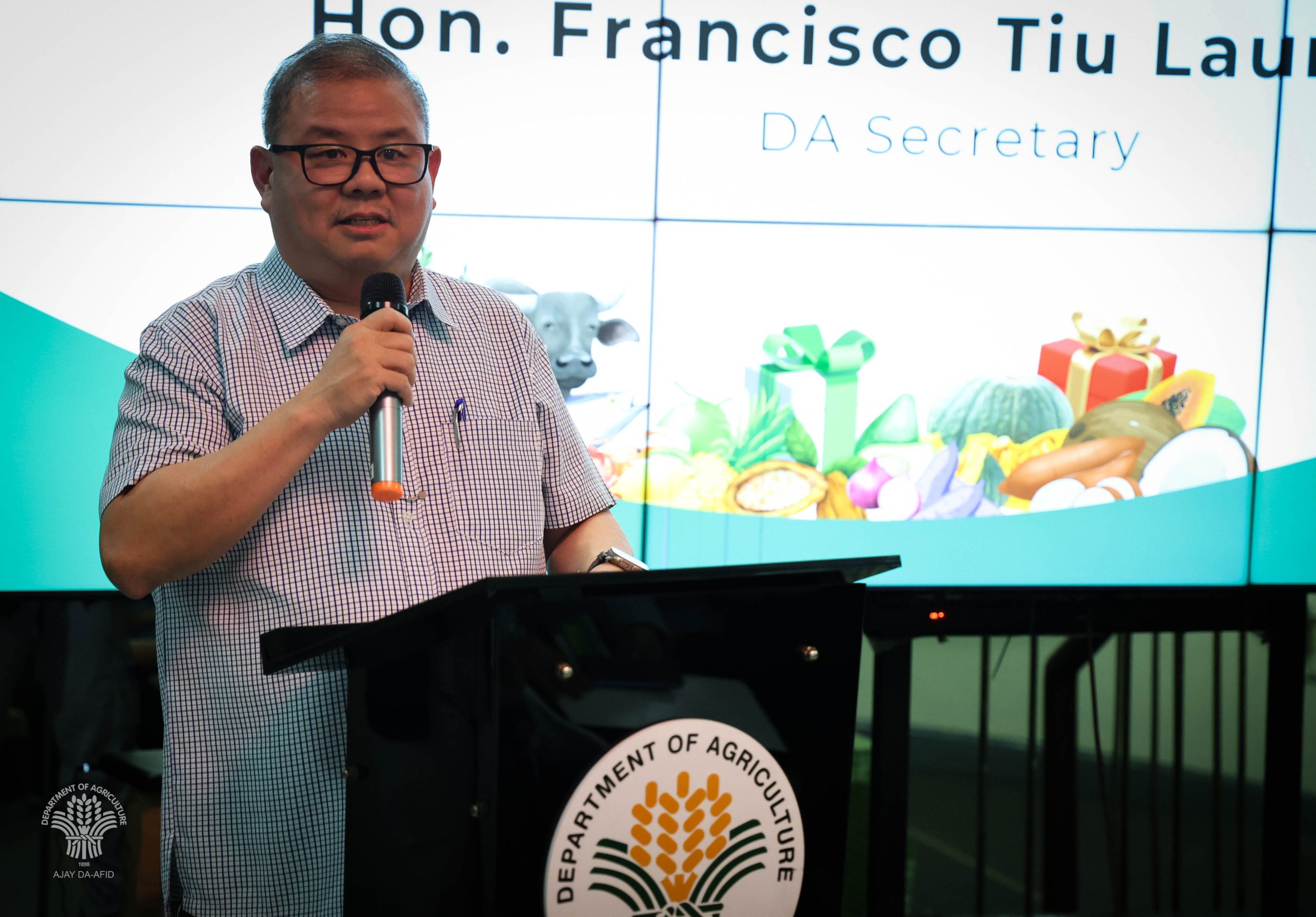
Agriculture Secretary Francisco Tiu Laurel, Jr. enjoined employees of the agency to stay focused on the goal of ensuring food security next year as the Philippines faces the challenge of El Niño and threats of external price and supply shocks.
As he led the Department of Agriculture’s annual Christmas celebration, his first as head of the agency, Secretary Tiu Laurel expressed confidence that a united and determined DA could foster greater food production in spite of hurdles and limitations.
“We have a big mission next year—a very big mission. Lahat, ang buong bansa, nakatingin sa atin (Every Filipino is watching us),” said Secretary Tiu Laurel.
“Dahil nakatingin sa atin ang buong bansa, kailangan tayong mag-perform (And because the country’s attention is focused on us, we have to perform well.) Let’s perform and prove our critics wrong,” said the agriculture chief, seeking to boost the morale of DA employees.
“The new DA will work towards ‘more production and less cost.’ A vast majority our countrymen, I am confident, wants us to succeed and we should not fail them,” he added.
Tiu Laurel sought everyone’s cooperation, underscoring the challenge before them in accomplishing President Marcos’ mandate to increase production to ensure food security and stabilize prices for the benefit of farmers and fishermen as well as consumers.
Food exporting nations like India imposed bans on rice and onion exports while others are stockpiling food supplies in preparation for El Niño. The tighter supply of agricultural products had consequently driven commodity prices higher.
The Department of Science and Technology has warned of a strong El Niño event that could affect 65 of the 81 provinces by May, with the possibility of moderate to severe drought—a condition where rainfall is below normal for three consecutive months—hurting those areas.
A prolonged dry spell would adversely affect food production, especially of water-dependent rice, the country’s food staple.
The Department of Agriculture, a member of the El Niño Task Force created by President Ferdinand Marcos, Jr. to mitigate the impact of the weather phenomenon, has started to implement initiatives to deal with the adverse affects of the expected drought by strengthening irrigation facilities, adopting alternative rice planting methods that require less water, animal dispersal, and providing alternative livelihood to farmers and fisherfolk.
“Together, we will overcome this challenge and emerge with flying colors,” Secretary Tiu Laurel told DA employees. ###













